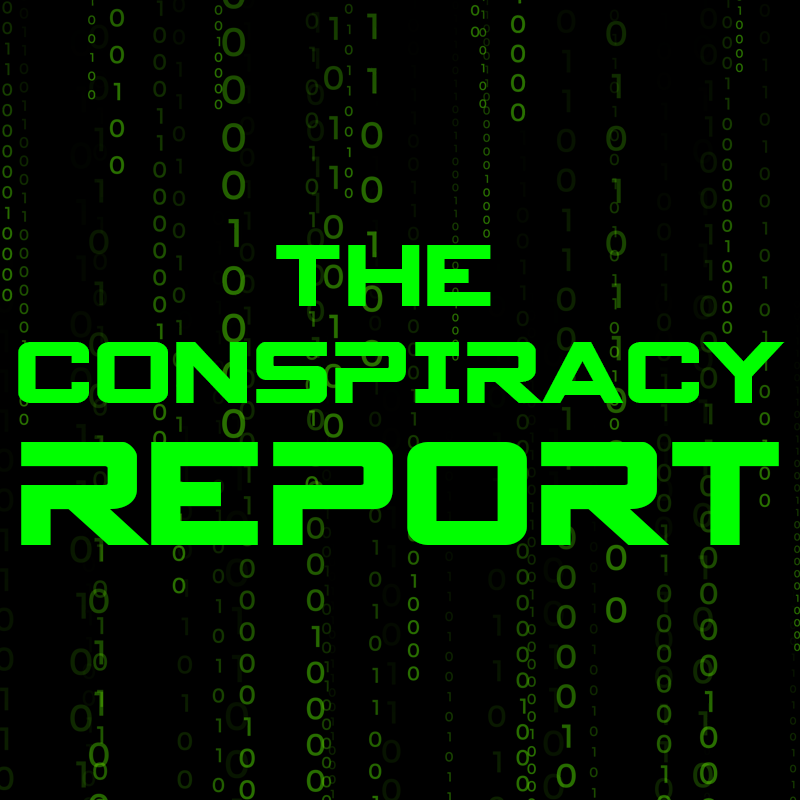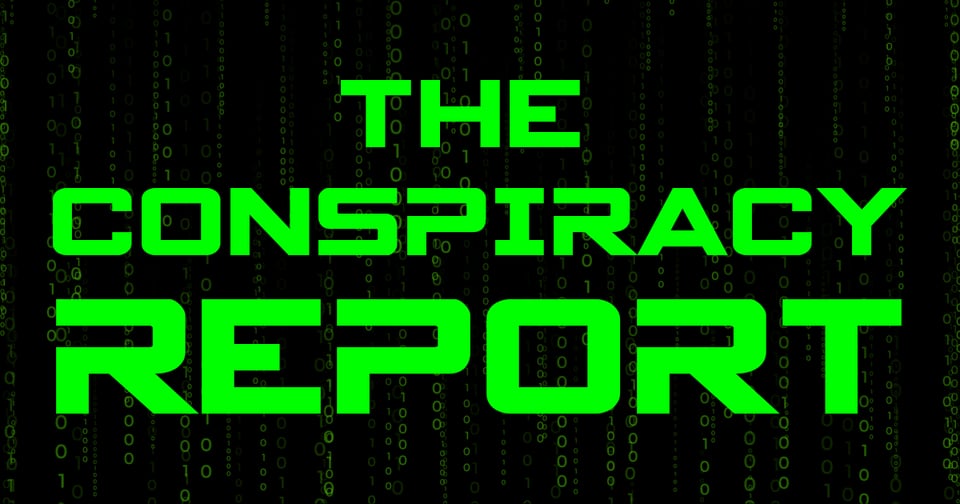Feb. 6, 2025, 2:37 a.m.
Food for Thought: The Lies in the Labels of Our Groceries

The Conspiracy Report

There’s a saying, ‘You are what you eat’ but do we really know what we are eating these days?
Can you trust the labels on the food products you buy?
Is the nutritional information correct, is the packaging deceptive, are there chemicals in the processing of foods that are not disclosed, or are revealed — minus a warning as to the dangers they pose?
The first thing to remember in today’s market, whether it’s the stock market or the corner market is that business exists to make a profit first.
The food business isn’t the health business, and the reality is, if the corporations feeding us could get away with something — they would, they will, and they do.
There’s another old saying, from Otto Von Bismarck, ‘Laws are like sausages, it’s best not seeing them being made.’ In the making of certain sausages, both the law and consumer trust were violated.
In 2023, Kelly Foods, maker of a rope sausage, ran afoul of the Food Safety and Inspection Service of the United States Department of Agriculture. They ‘forgot’ to put on the label of the product, that the sausages contained cheese, which of course is made from milk, which is an allergen.
Some 1,455 pounds of the stuff had to be recalled.[1]
One would think that sausages wouldn’t contain cheese, like one would think that meat is not dairy. Also, one would think that beef would not contain the first step in a chicken — an egg. But one would be wrong.
Conagra Brands, a giant in the food industry, ran into a spot of bother in 2022, when its ‘P.F. Chang’s Home Menu Beef and Broccoli’ was found to contain eggs, an allergen to some, which was not disclosed on the label.
A bunch of that product was recalled — 119,581 pounds of it. (Kinda answers the question, ‘Where’s the beef?’ Right next to the eggs?).[2]
Now, maybe you’re the kind of person who likes to eat healthy. And as a dedicated label reader, you look before you leap at a product you are going to put into your body. Good for you, but bad for the companies that mislead you with nonsense in their labels.
You buy your peanut butter perhaps, because the label touts ‘no cholesterol.’ Turns out, unless it’s an animal product, it would never contain cholesterol in the first place.[3] This is tantamount to selling water with a label that says ‘wet.’
Then there’s that old standby, ‘natural.’ That’s meaningless unless there’s another version of the product that’s ‘supernatural.’
Since we are using some ‘old sayings’ in this article, how about this one: ‘that’s a horse of a different color.’ Well, in 2013 in Europe, one could say that about the beef products being sold by some manufacturers. ‘A beef burger from Tesco, a major European supermarket chain, was found to contain 29% horsemeat.’[4]
Here’s a bit of sweetness that will turn you sour on food manufacturers. In a March 24, 2023 article in Forbes, it was revealed that ‘Nearly half of the honey in European markets is fake, according to an EU Investigation.’[5]
We’ve been informed that having fiber in our diets can be a good thing, but sometimes there can be too much of a good thing — like when there’s wood pulp in our parmesan cheese. Now while pepper jack cheese can be quite tasty, lumberjack cheese is an entirely different matter.
Some of the matter in question was the wood pulp found in many brands of parmesan, including products sold in such well-known supermarkets as Walmart and Whole Foods.[6]
So, who can you trust when it comes to food labeling? Apparently, nobody.
Ready for another old saying? How about ‘in vino veritas,’ or in plain English, (unlike our food labels), in wine, truth?
But that isn’t always the case with wine cases. Because ‘French winemaker Vincent Lataste was sentenced to a year in prison for exceeding the allowable limits of sulfur dioxide in his wine.’[7]
Reading the above, you might think that the food industry is ‘going to the dogs,’ and speaking of what is going to the dogs, our furry friends can be victims to food mislabeling too.
A 2014 study by Chapman University which was ‘focused on commercial pet foods marketed for dogs and cats to identify meat species present as well as any instances of mislabeling. Of the 52 products tested, 31 were labeled correctly, 20 were potentially mislabeled, and one contained a non-specific meat ingredient that could not be verified.’[8]
But perhaps we are being too hard on the food industry, and should extend an olive branch to them. Well, even with olives we have to be careful, because in 2016, ‘Italian police seized 85,000 tons of olives from previous years’ harvests covered with a chemical aimed at making them more colorful.’[9]
In that same year, in that same country, it was found that 80 percent of the olive oil sold in markets was fraudulent.[10]
Now, if you knew sushi, like they know sushi in Los Angeles, you’d know that half of the raw fish that you are shelling out big bucks for are fraudulent — there’s something fishy about them, one might say.[11]
Estimates exist that ten percent of all food items are mislabeled.[12]
In 2020, it was determined that from 190,000 to 250,000 tons of seafood sold in the United States each year is mislabeled.[13]
Why You Should Care
If you like seafood, you don’t want to be a victim of bait and switch. (Pun definitely intended). You don’t want to pay for top shelf when you’re getting the equivalent of oceanic speed rack fish.
You want your olive oil to really be extra virgin, you want your meat to be meat, your chicken not something to be afraid of. And you sure as shootin’ want to know if there are any allergens in a food product which can cause you to be at your own last supper.
Unfortunately, corporations are more interested in what benefits their bottom line and less interested in providing top of the line products for our consumption.
Food can make you healthy, or when ingested based upon false labels, it can kill you.
[1] Kelley Foods Recalls Smoked Baby Rope Sausage Product Due to Misbranding and an Undeclared Allergen 3/23/23 https://www.fsis.usda.gov/recalls-alerts/kelley-foods-recalls-smoked-baby-rope-sausage-product-due-misbranding-and-undeclared
[2] Conagra Brands, Inc., Recalls Frozen Beef Products Due to Misbranding and Undeclared Allergens 12/12/22 USDA https://www.fsis.usda.gov/recalls-alerts/conagra-brands-inc--recalls-frozen-beef-products-due-misbranding-and-undeclared
[3] GAPLES INSTITUTE https://www.gaplesinstitute.org/5-misleading-food-labels/?gad_source=1&gclid=EAIaIQobChMIhN-X2IWtiwMVj0b_AR3JPiSkEAAYASAAEgJH4vD_BwE
[4] MASHED https://www.mashed.com/1300508/foods-commonly-mislabeled/
[6] MASHED https://www.mashed.com/1300508/foods-commonly-mislabeled/
[7] IBID.
[8] CHAPMAN UNIVERSITY 9/30/14 https://www.eurekalert.org/news-releases/492378
[9] TIME, Worland, 2/4/16 Italian Police Seize 85,000 Tons of Olives Covered in Copper Sulfate To Make Them Greener https://time.com/4207676/italy-olives-copper-sulfate/
[10] FOODBEAST https://www.foodbeast.com/news/common-food-fraud/
[11] IBID.
[12] CBS NEWS TEXAS, 9/22/14 https://www.cbsnews.com/texas/news/research-10-of-all-food-mislabeled-diluted-or-misrepresented/
[13] Proceedings of the National Academy of Sciences of the United States of America 2/27/20 Kroetz, https://www.pnas.org/doi/full/10.1073/pnas.2003741117